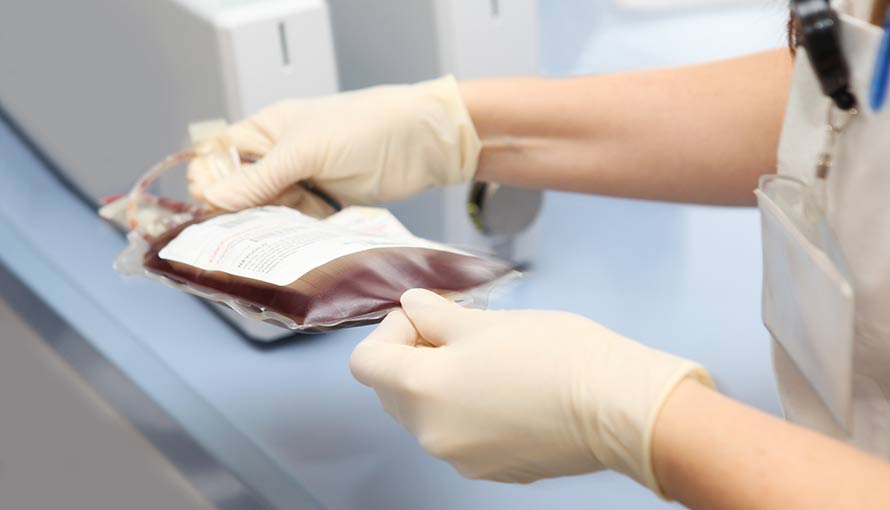Myelodysplastic Syndrome Treatment

There are several options for myelodysplastic syndrome treatment. Most patients receive a high-dose course of chemotherapy followed by a stem cell or bone marrow transplant; however, the exact treatment plan recommended will depend on the patient’s unique diagnosis.
Typically, the first step an oncologist will take is to determine if the patient is a candidate for a stem cell transplant. That’s because transplantation is a type of myelodysplastic syndrome treatment that has been shown to lead to long-term remission. This process involves:
- Harvesting healthy stem cells from an adult donor, such a patient’s brother or sister, who is a match for the patient’s cell type (stem cell transplants can sometimes be performed with a patient’s own stem cells, although patients with MDS typically have cellular abnormalities in their own stem cells that prevent this from being an option)
- Destroying the patient’s improperly functioning bone marrow cells through high-dose chemotherapy and/or radiation therapy
- Replacing the destroyed cells with the healthy donor cells
While transplantation can be a highly effective form of myelodysplastic syndrome treatment, the required chemotherapy can be taxing. For this reason, elderly and very young patients may receive lower doses of chemotherapy or radiation therapy in order to minimize the potential side effects. This option is called a non-myeloablative allogenic stem cell transplant.
Patients who are not eligible for a transplant – or who elect not to receive one – may consider conventional chemotherapy on its own, as well as options such as immunotherapy. Patients may also receive blood transfusions to treat anemia, take antibiotics to help fight off infections or take medications with growth factors to help their red blood cells mature more quickly. These treatments can help patients manage the symptoms of MDS, although they are not considered to be curative.
At Moffitt Cancer Center, our Malignant Hematology Program offers a complete range of treatments for MDS, from stem cell transplantation and chemotherapy to biological therapies and blood transfusions. Our MDS program, which is among the largest in the nation, can also match patients with active clinical trials in which the effectiveness of innovative treatments is compared to that of existing therapies. Individualized recommendations are made for each patient, and weekly reviews are conducted by our program’s tumor board to ensure the best possible outcomes. Furthermore, a complete range of supportive care services are available to enhance each patient’s quality of life.
Patients can receive myelodysplastic syndrome treatment at Moffitt with or without a referral. To make an appointment, call 1-888-663-3488, or submit a new patient registration form online.
Helpful Links:
